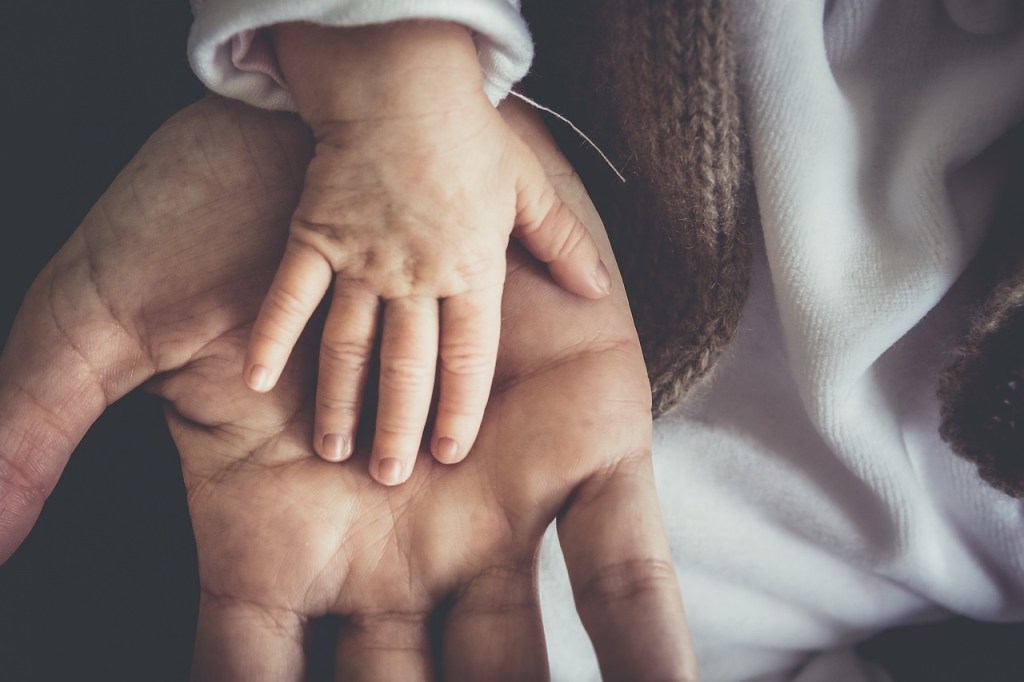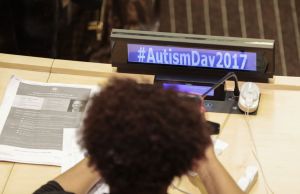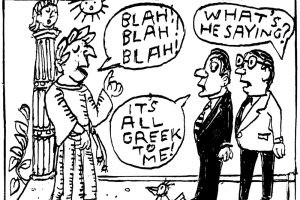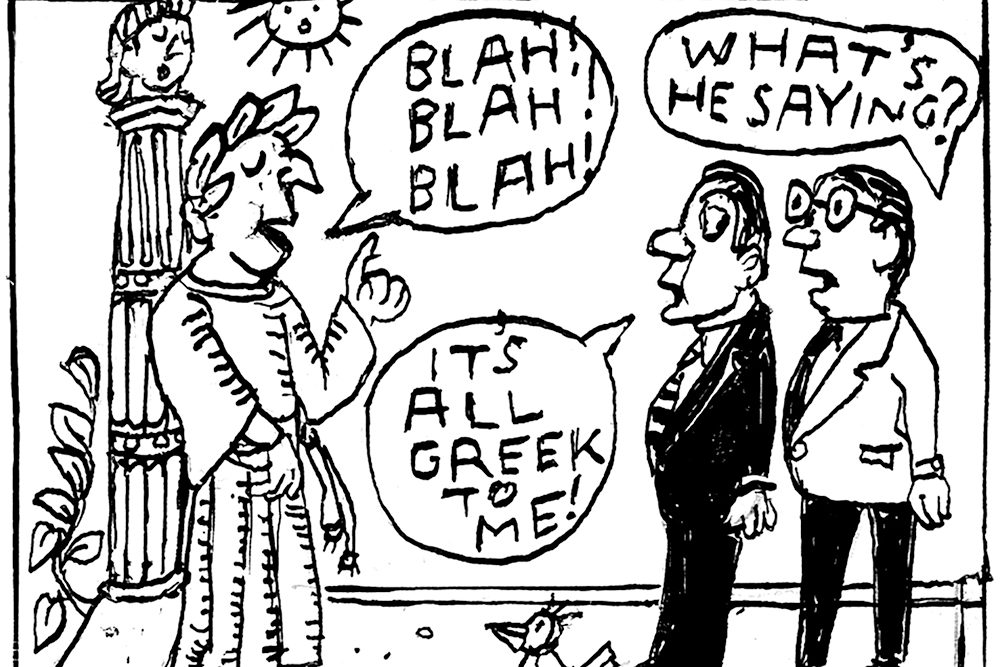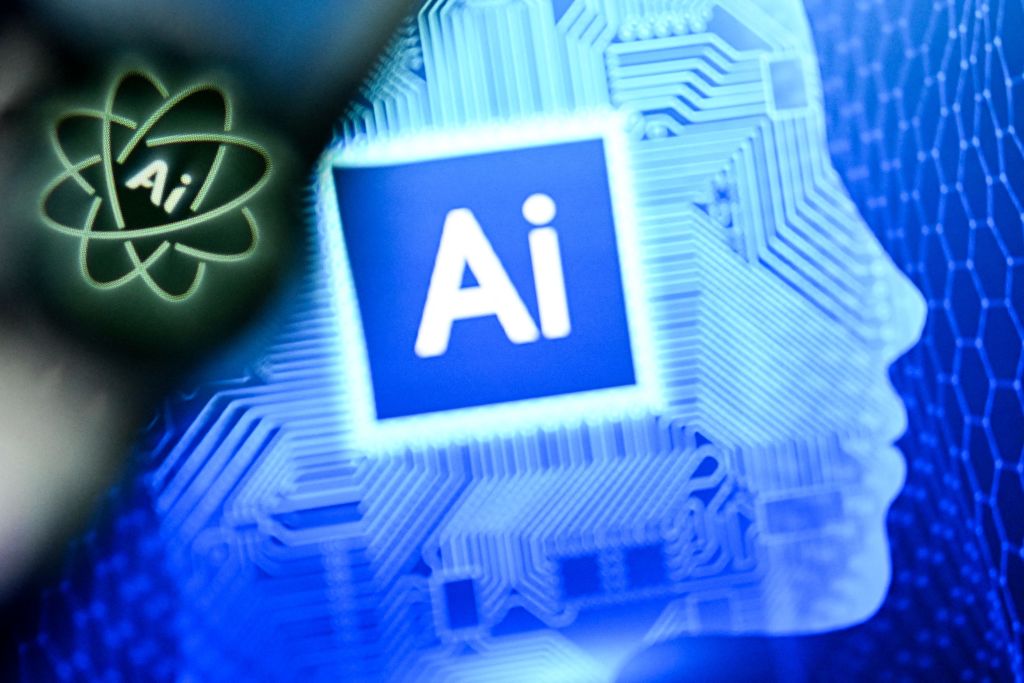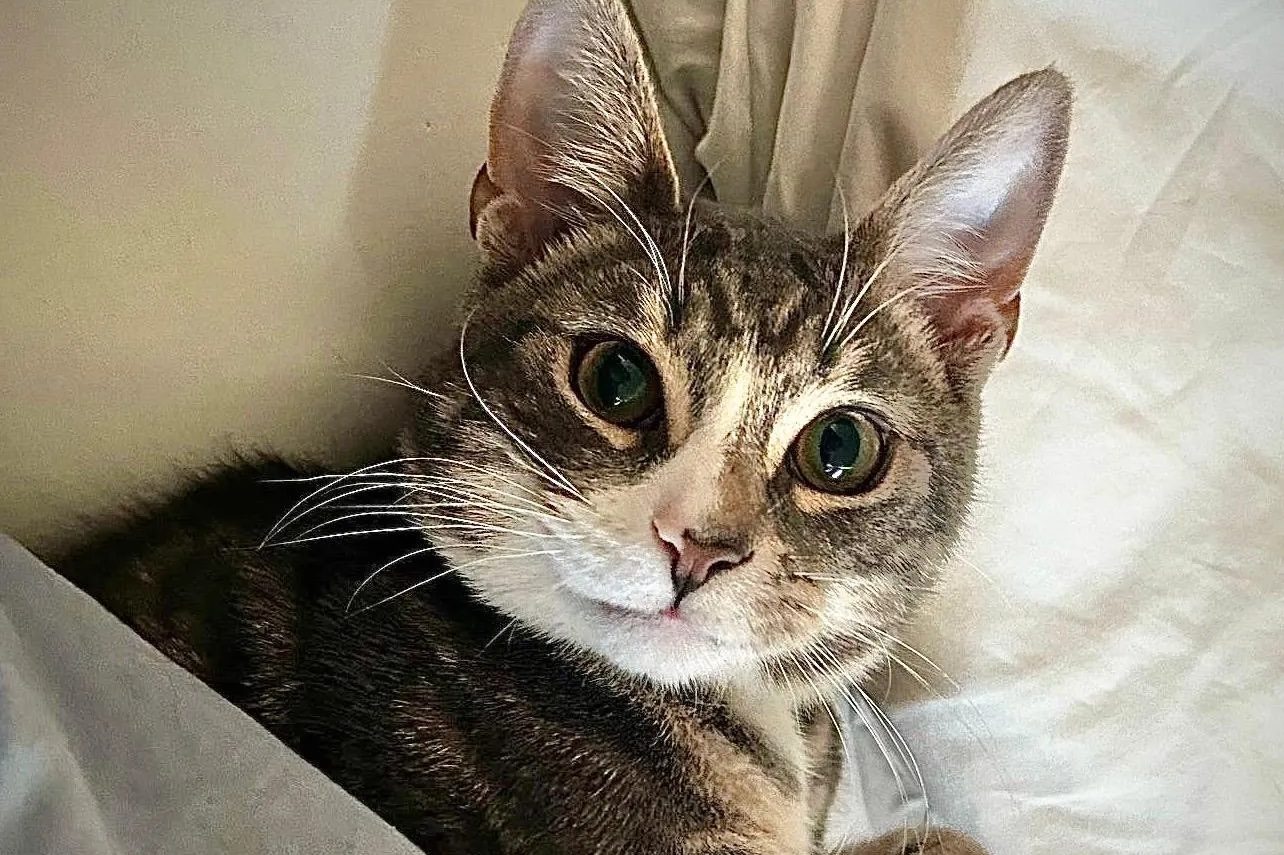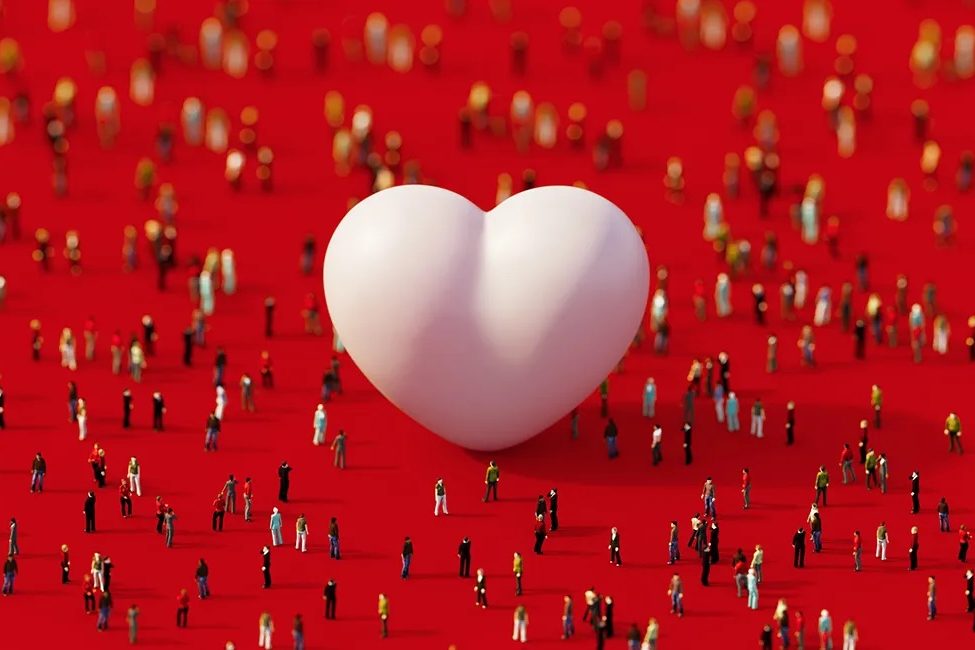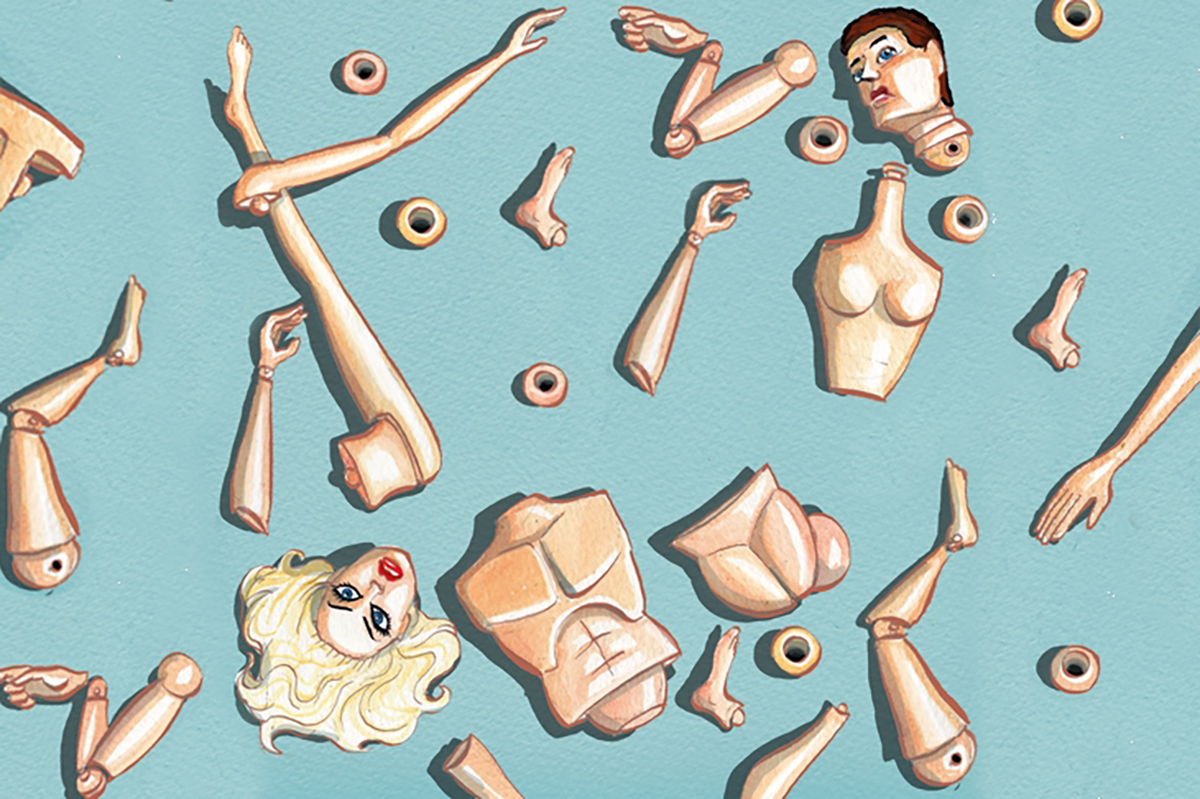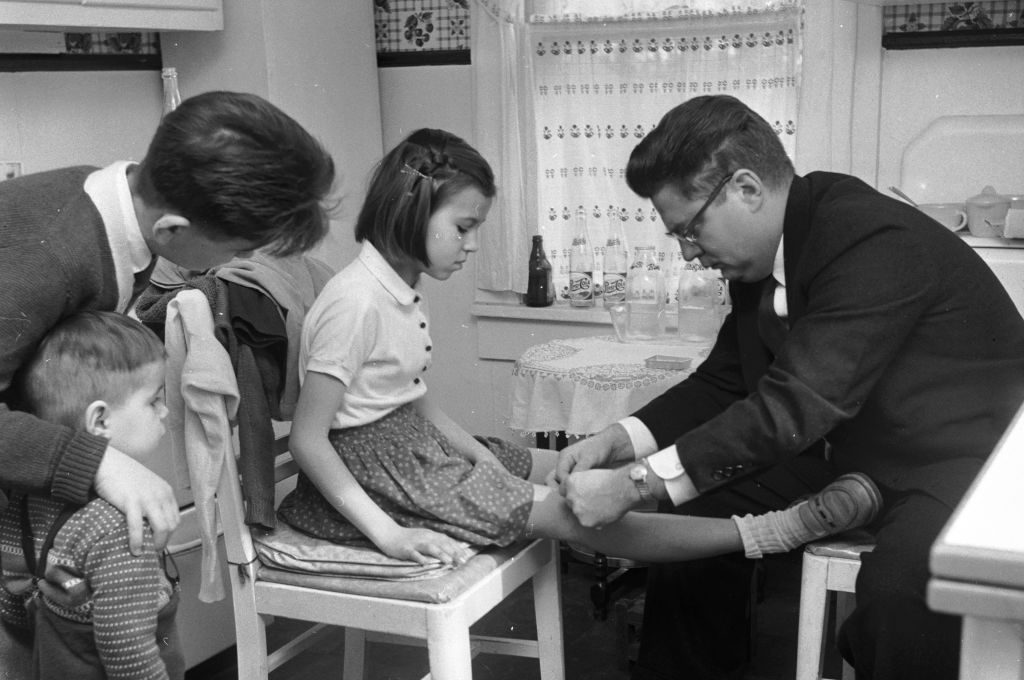This article is in
The Spectator’s October 2019 US edition. Subscribe here.
When I was growing up in the late 1960s, boys like me craved the admiration and approval of our dads; we wanted nothing more than to impress them. And now that we are dads, we crave the admiration and approval of our children; we want nothing more than to impress them. But the curious thing is, they don’t care about impressing us. In fact, our teenage children are just like our dads were — distant figures who are busy getting on with their own lives.
Today we demonize dads of the recent past for being cold and uncaring. For failing to change diapers, read stories at bedtime, provide the unconditional love and praise children need to grow into happy, well- adjusted adults. Despite the fact that historians have shown that fathers of the past — both in Victorian times and the 1950s — were much more involved with their children than the popular stereotypes allow, they provide modern dads with the perfect example of how not to be a dad.
But as an anxious dad who is always desperate to impress his 15-year-old son, I envy the dads of old. God knows they had plenty of faults, but Dad Anxiety was not one of them. They didn’t worry about being a Good Dad or a Bad Dad, the way we modern dads do. They didn’t read books with titles like How To Be a Good Dad: What Every Father Must Know To Be a Good Dad and Raise Great Kids (John McQuilkin) or George Zelina’s The Loving Dad’s Handbook: Raise Them Like Your Life Depends on It.
Dads were just… dads.
And they didn’t worry about boring their children, either. They’d drag them off for long, tedious Sunday car trips that ended in places of ‘historical interest’ that nobody found interesting but dad. And did they care if their kids were asphyxiated with boredom? Not a bit. Children had not yet discovered that being bored was a violation of their human rights.
Dads were expected to provide food, shelter and security. We modern dads are expected to provide the same and protect them from boredom. We’re so anxious that our kids might have to suffer the torture of silence and the torment of doing nothing, we dish out digital pacifiers; smartphones are shoved in the little hands of toddlers while older kids are inoculated with iPads and laptops.
Some of us even try to entertain our children ourselves, just like our dads did. We tell our ‘funny’ stories over dinner and do bits of comic improvisation — and usually die the death. You think your anecdote about what happened at work or some ‘hilarious’ incident when Dad first met Mom is going to entertain your kids? Get real. No dad can compete with the endless outpouring of funny and entertaining things your kids can find on their smartphones and YouTube 24/7. We assumed that we were going to be better dads than our dads because we were enlightened men who knew fathers had an important role to play in the lives of their children. And unlike our dads we knew how to express love and show our feelings and so we’d be closer to our kids and they’d be closer and more loving to us.
But talking to other dads, I sense that while parenthood has been — overall — the most enriching and rewarding experience of their lives, there’s a small sense of disappointment. As one put it: ‘I did everything I could not to be like my dad. I was more loving and encouraging — and I don’t think it’s made much of a difference. Most of the time my kids think I’m a crap dad.’
What happened? Put simply: the Dad Revolution has failed. By that I mean the dream that we could be better men, better dads creating better children. It was a form of parental utopianism that had its roots in the 1980s. It was then that fatherhood was repackaged and promoted as a progressive alternative to macho materialism.
It was the time when lefty-minded men who’d fallen under the spell of feminism were questioning conventional gender ideas of what it meant to be a man. There was much talk of the New Man — remember him? That caring, sharing figure in touch with his feelings. David Beckham was the New Man poster boy.
Leftist champions of the New Man movement who were aiming to deconstruct toxic masculinity saw in fatherhood a new kind of role model for all men. And so we self-aware, anti-macho new men went off to antenatal classes and attended the births of our sons and daughters. We were happy to change diapers and do early morning bottle feeds. (At least some of us.) Instead of the laissez-faire approach to our children’s lives, we followed the new child expert advice for a more hands-on style.
But if the dad of old was too distant, today’s dad is too close, as can be seen in the phenomenon of helicopter parents. Where is the dad who dares tell the children to leave him alone and go out and explore on their own? Instead of strong, self-confident and robust kids we produced the ‘snowflake’ generation.
Most dads in the past did their best with mixed results — but we arrogantly assumed we could do so much better. And yes, having more attentive and caring dads does provide for a better start in life. But it would be hard to argue — given the growing rates of mental health problems, drug abuse, depression, etc — that today’s teenagers and twenty-somethings have emerged happier and better equipped for adult life than the generation raised by distant dads.
Anna Machin is an evolutionary anthropologist and author of The Life of Dad: The Making of a Modern Father. She has long been a champion for the role of dads in their children’s lives, but even she admits that there is ‘no formula’ for successful parenting. And yet young modern dads buy books and read blogs that promise to show them the ‘secrets’ to being ‘super dads’, ‘awesome dads’ producing ‘amazing’, ‘happy’ and ‘successful children’. Good luck with that, guys, but I suspect that such unrealistic aspirations are doomed to disappointment.
This article is in The Spectator’s October 2019 US edition. Subscribe here.



